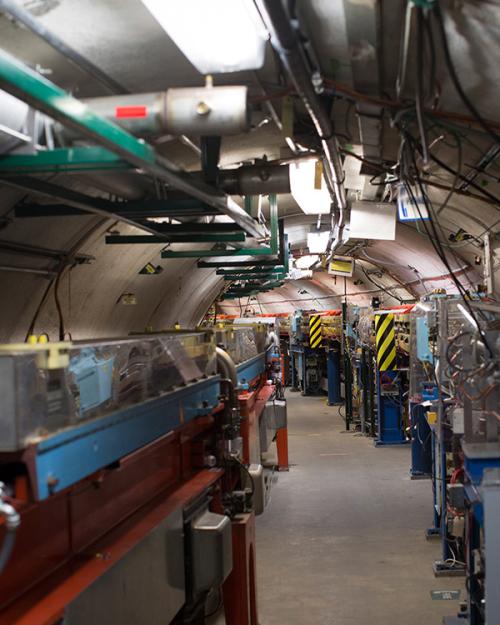The Department of Energy has chosen Cornell and three partner institutions to establish the new DOE Tigner Traineeship in Accelerator Science program, funding the program with a $4.4 million grant. The program’s goal is to “produce a diverse body of broadly educated fellows” in areas targeted by DOE’s Office of Science, including RF superconducting structures, high brightness electron sources for linear accelerators, physics of large accelerators and system engineering, and operation of large-scale accelerator systems.
The program is named after Maury Tigner, Hans A. Bethe Professor Emeritus, a pioneer of accelerator physics.
“The multi-institutional nature of this traineeship program is foundational, enabling it to have wide topical coverage,” said Matthias Liepe, professor of physics in the College of Arts and Sciences (A&S), who is principal investigator for the program.
Cornell co-investigators are Georg Hoffstaetter, professor of physics, and Jared Maxson, associate professor of physics (both A&S). Arizona State University, the University of California, Los Angeles, and the University of Chicago are the partner institutions.
Fellows in the program will receive structured training in modern accelerator science and technology and be embedded as students in labs. The program curriculum includes academic courses, mini-courses in specialized topics, professional development, and research and team science. It also includes collaboration with scientists at the DOE National Laboratories and an internship at a National Laboratory.
“The program will give its graduates the skills, tools, and motivation needed to become leaders in the accelerator field,” said Liepe, adding that the program’s ultimate goal is to significantly increase the overall number of accelerator science Ph.D.’s produced in critical areas, which will help to meet the workforce needs of world-leading DOE accelerator laboratories.
The research and development experience is critical to effective training in accelerator science and engineering, according to the program team. Trainees will work full time in accelerator research, with explicit emphasis on hands-on experience both with on-campus accelerator infrastructure and large facilities at the DOE National Labs. Their work will focus on superconducting RF cavities and the physics of large accelerators and systems engineering.
Regular participant meetings and an annual in-person workshop will be held with the goal of fostering a strong sense of belonging and team building among the participants across institutions.




